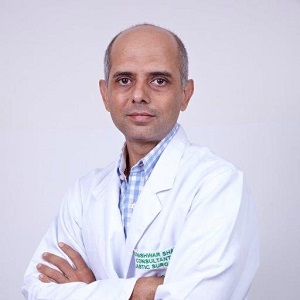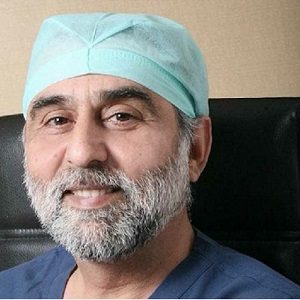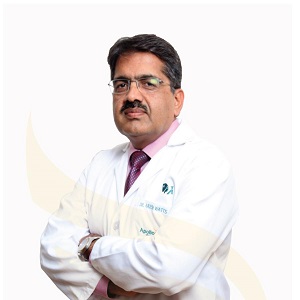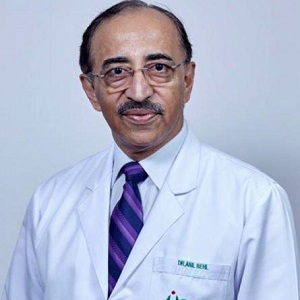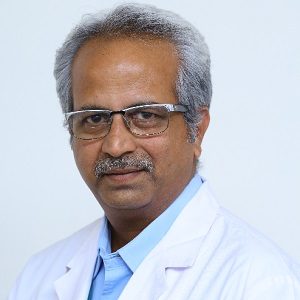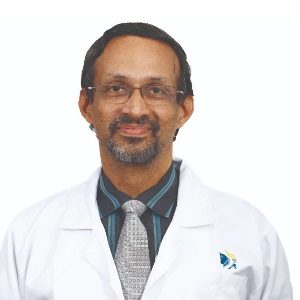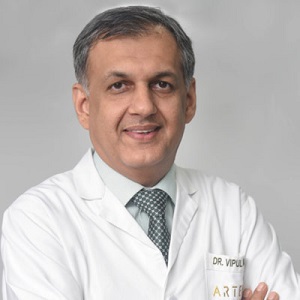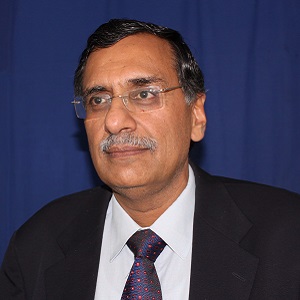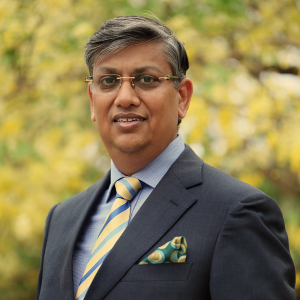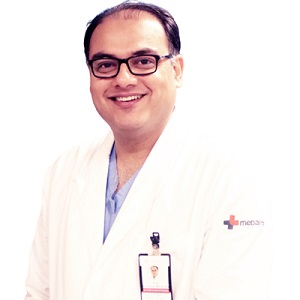Best Doctors in India for Face Lift
- Plastic & Cosmetic Surgeon, Gurugram, India
- Over 20 years’ experience
Profile Highlights:
- Dr. Adhishwar Sharma is a reputed plastic surgeon, with an extensive experience in plastic and reconstructive surgery.
- He has been associated with various hospitals like Fortis hospital Noida, Batra Hospital, Metro hospital Faridabad, and Central hospital Faridabad.
- He has an interest in Brachial Plexus reconstruction and lymphedema. He has published articles in various international and national journals. He is a member of various professional bodies.
- Cosmetic & Plastic Surgeon, New Delhi, India
- Over 30 years experience
Profile Highlights:
- Dr. Shahin Nooreyezdan is a well-known plastic surgeon in India with over 30 years of experience. He works as a senior plastic surgeon at the Indraprastha Apollo Hospital in New Delhi.
- Dr. Nooreyezdan extensively works on post-cancer reconstruction, burns & microvascular surgery, and re-attaching amputated limbs to improve the aesthetic appeal as well as deformities correction.
- Dr. Nooreyezdan is also attached to various social responsibility events like “Project Hope,” where he helped in recovering and rehabilitating 33 Christian orphans from the Tsunami-affected Nicobar Islands. Dr. Shahin has been the financial support for providing English and Moral Education to deprived children.
- Plastic & Cosmetic Surgeon, New Delhi, India
- Over 20 years’ experience
Profile Highlights:
- Currently associated with Indraprastha Apollo Hospitals, Dr. Rajesh Watts is a renowned plastic surgeon in Delhi with around 20 years of experience.
- He had completed his MBBS in the year 1990 from Guru Nanak Dev University, and did his MS in General Surgery in the year 1996, from University of Rajasthan. He got his MCh in Plastic Surgery in the year 2003, from Banaras Hindu University.
- Some of the services provided by Dr. Rajesh Watts include instant brow lift treatment, hair loss treatment, hair replacement, hair transplant, etc.
- Plastic & Cosmetic Surgeon, Gurugram, India
- Over 38 years’ experience
Profile Highlights:
- Dr. Anil Behl is an accomplished and skilled plastic surgeon with over 38 years of experience. He has excelled in the field of Burns care, complex reconstructive and aesthetic surgeries.
- He obtained special training in hand surgery in the UK (1993-1994) in Craniofacial Surgery at Providence Hospital USA in 1994-95 and in Aesthetic Surgery in the USA (2000-2001).
- Plastic Surgeon and Cosmetic Surgeon, Chennai, India
- Over 27 years’ experience
Profile Highlights:
- Dr. Chepauk Ramesh is one of the best and most experienced Aesthetics and Plastic Surgeons in India, having about two decades of experience.
- Dr. Ramesh completed a fellowship in Microvascular Surgery at the Nizam’s Institute of Medical Sciences in Hyderabad and Tata Memorial Hospital in Mumbai.
- He gives the best of his assistance to the patients in trauma management, Microvascular Reconstruction, Correction of Congenital Anomalies, Trauma Management, Hand Surgery, Burns Reconstruction, and General and Cosmetic Surgery.
- Plastic Surgeon and Cosmetic Surgeon, Chennai, India
- Over 36 years’ experience
Profile Highlights:
- Dr. Ganapathy Krishnan is a leading Cosmetic or Plastic Surgeon in Chennai and one of India’s most sought-after consultants.
- Dr. Krishnan has been helping patients with the know-how of Reconstructive management for 36 years in this field.
- He received Microsurgery training in Taiwan and practiced for 18 years.
- Plastic & Cosmetic Surgeon, Gurugram, India
- Over 20 years’ experience
Profile Highlights:
- Dr. Vipul Nanda is known as one of the most reputed plastic surgeons in India and has over 20 years of experience. Dr. Nanda did his MS from AIIMS and MRCS in UK. Following MCh from PGI in 1997 he underwent advanced fellowships under world leaders in cosmetic and plastic surgery in Spain, Japan, U.K. & USA.
- Throughout his career, Dr. Vipul Nanda has presented and published his technique of cleft palate repair and rhinoplasty for cleft patients at various national and international fora which have been acclaimed by his peers.
- Plastic & Cosmetic Surgeon, Gurugram, India
- Over 25 years’ experience
Profile Highlights:
- Dr. Rakesh Kumar Khazanchi is the Chairman of Plastic, Aesthetic, and Reconstructive Surgery at Medanta.
- With over 25 years of surgical experience, Dr. Rakesh Khazanchi specializes in cosmetic surgery, reconstructive microsurgery, vascular malformations, replantation of amputated parts as well as head and neck reconstruction.
- Dr. Khazanchi has undertaken 22 research projects, has published over 60 papers in national and international journals, and has also contributed over four chapters in textbooks as well as edited and authored a book of Plastic Surgery for General Surgeons.
- Plastic & Cosmetic Surgeon, New Delhi, India
- Over 28 years’ experience
Profile Highlights:
- Dr. Sunil Choudhary is the Principal Director & Chief of Plastic Surgery at Max Super Speciality Hospital, New Delhi.
- He has over 28 years of proficient experience in the medical field and has been honored for being the first-ever Indian Plastic Surgeon to be awarded Board Certification by the European Board of Plastic, Reconstructive & Aesthetic Surgery in Bern, Switzerland.
- Dr. Choudhary’s outstanding performance, especially in the field of Aesthetic Surgeries such as face reconstruction and breast augmentation, rhinoplasty, and microsurgery has earned him several awards and accolades.
- Plastic and Reconstructive Surgeon, Gurugram, India
- Over 25 years’ experience
Profile Highlights:
- With over 25 years of experience, Dr. Sanjay Mahendru is a fully qualified aesthetic plastic and reconstructive surgeon.
- He went to receive advanced training in Cosmetic Surgery at the Melbourne Institute of Plastic Surgery, Melbourne, Australia.
- He was also awarded the Advanced Aesthetic Plastic Surgery Fellowship in 2008. The fellowship is recognized by the International Society of Aesthetic Plastic Surgery (ISAPS) and is highly sought after the world over.
Best Hospitals in India for Face Lift
Indraprastha Apollo Hospital, New Delhi
- City: New Delhi, India
Hospital Highlights:
- Indraprastha Apollo Hospital is a 700-bedded multispecialty hospital in the heart of the capital of India. It is a part of Apollo Hospital group, one of India’s most reputed healthcare chains. Indraprastha Apollo Hospital has been accredited by Joint Commission International, making it the first internationally accredited hospital in the country in 2005.
- There are 52 specialties in the hospital with one of the best cardiology centers in the country. The hospital is also equipped with State of the art infrastructure facilities with the largest Sleep Lab in Asia and the largest number of ICU bed facilities in India.
- The hospital also has one of the largest dialysis units in India along with a dedicated Bone Marrow Transplant unit.
- The latest and highly advanced technologies that are installed in the hospital include Da Vinci Robotic Surgery System, PET-MR, PET-CT, Cobalt-based HDR Brachytherapy, Brain Lab Navigation System, Tilting MRI, Portable CT scanner, 3 Tesla MRI, 128 Slice CT scanner, DSA Lab, Endosonography, Hyperbaric Chamber and Fibro scan.
Fortis Memorial Research Institute, Gurugram
- City: Gurugram, India
Hospital Highlights:
- Fortis Memorial Research Institute is a multi-super-specialty, quaternary care hospital with 1000 beds. The hospital comprises reputed clinicians, and international faculty and is also equipped with cutting-edge technology. The hospital is a part of Fortis Healthcare Limited, a reputed chain of private hospitals in India.
- It is a NABH-accredited hospital that is spread across 11 acres of land and has a capacity of 1000 beds. The hospital has 55 specialties and is one of the premier health care centers in the Asia Pacific region popularly known as “the Mecca of Healthcare”.
- The hospital has 260 diagnostic centers and is also equipped with the latest and advanced techniques that include 3 Telsa which is the world’s first Digital MRI technology. The hospital also has world-class Radiation Therapy techniques which have been developed by leading technology experts from Elekta and Brain Lab.
Apollo Hospital, Chennai
- City: Chennai, India
Hospital Highlights:
- Apollo Hospitals, Chennai, is one of the best hospitals for heart care in India. Over the years, Apollo has expanded all over India, as a healthcare chain.
- India’s first ‘Only Pancreas’ transplant was performed in Apollo Hospital. The hospital is known for successfully performing Asia’s first en-bloc combined heart and liver transplant, and over the years, it has attained a remarkable achievement in the global healthcare space. Around 3-4 organ transplants are performed in the hospital per day.
- Equipped with over 500 beds, this hospital in Chennai was established in 1983 and since then has been among the most preferred hospital for patients from all over the world.
- The hospital holds accreditation of the NABH and JCI and is the first hospital in India to be ISO 9001 and ISO 14001 certified. It is also the first South Indian Hospital to receive subsequent reaccreditation from the JCI USA 4 times.
Medanta-The Medicity, Gurgaon
- City: Gurugram, India
Hospital Highlights:
- One of India’s best and largest multi-specialty hospitals, Medanta was built with the aim to bring India to the highest standards of medical care. The hospital has been providing the best medical services to its patients, since its inception, with care, commitment, and compassion.
- Equipped with 1250 beds, the hospital was founded by Dr. Naresh Trehan in the year 2009 with an aim to provide the best medical care at affordable costs. The hospital is spread across 43 acres and includes 45 operation theatres and 350 beds dedicated solely to ICU. The hospital includes over 800 doctors, and more than 22 specialty departments and has a dedicated floor for individual specialty in order to offer the best services under one roof.
- The hospital is considered one of the premier institutes in India for Cardiac Care and includes staffs and members of high caliber. The hospital has 6 distinct centers of excellence.
Max Super Specialty Hospital, New Delhi
- City: New Delhi, India
Hospital Highlights:
- One of the well-regarded providers in India committed to the highest standards of clinical excellence and patient care, Max Super Specialty Hospital is a part of Max Healthcare, which is the second-largest healthcare chain in India. Regarded as one of the most well-regarded healthcare providers in the country, Max Super Specialty Hospital is committed to the highest standards of clinical excellence as well as patient care. The hospital is also equipped with the latest technology as well as cutting-edge research. The hospital is known to deliver and ensure the highest level of patient care.
- The hospital has more than 500 beds and offers treatment for over 35 specialties. The hospital also holds the credit of having installed the first Brain Suite in Asia. This is a highly advanced Neurosurgical machine that allows MRI to be taken while surgery is ongoing.
- Other advanced and latest technologies are also installed in the hospital such as the 1.5 Tesla MRI machine, 64 Slice CT Angiography, 4D ECHO, LINAC, and 3.5T MRI machine.
Artemis Hospital, Gurugram
- City: Gurugram, India
Hospital Highlights:
- One of the most well-known hospitals in the Delhi NCR, Artemis Hospital is the first hospital in Gurugram to get accredited by the Joint Commission International.
- With more than 40 specialties, the hospital has been designed to be one of the most technically advanced hospitals in the country, with the best medical and surgical health care. The hospital has eleven special and dedicated centers, for Heart, Cancer, Neurosciences, etc.
- The latest technologies in the hospital include Endovascular Hybrid Operating Suite and Flat panel Cath Labs for the cardiovascular department, 3 Tesla MRI, 16 slice PET CT, 64 Slice Cardiac CT Scan, HDR Brachytherapy, and highly advanced Image Guided Radiation Therapy techniques (LINAC) are installed in the hospital.
- The hospital has won several awards as well, since its inception.
BLK Max Super Specialty Hospital, New Delhi
- City: New Delhi, India
Hospital Highlights:
- Equipped with 650 beds, BLK Superspecialty Hospital is the largest stand-alone private sector hospital in Delhi.
- With over 1500 healthcare providers and 150 globally renowned super specialists, the hospital is one of Asia’s largest Bone Marrow Transplant Centres. The hospital is known for having some of the best cancer doctors in the country.
- The hospital is NABH and NABL accredited and was inaugurated by the first Prime Minister of India. Pt. Jawahar Lal Nehru.
Gleneagles Global Hospitals, Chennai
- City: Chennai, India
Hospital Highlights:
- Established in 1999, Gleneagles Global Hospital, Chennai, is one of the top healthcare facilities in Southern India. It is part of the Gleneagles Hospital Chain, which is the fourth largest healthcare chain in the country. The hospital specializes in multi-organ transplants of kidneys, liver, lungs, heart, etc.
- The hospital has an excellent infrastructure and state-of-the-art lab and equipment set-up. The hospital boasts cutting-edge technologies, a highly skilled team of doctors and surgeons, and trained support staff. Located in Perumbakam, Chennai, it is one of India’s premier health care destinations. The hospital has performed some of the most complex surgical and clinical procedures in India including multi-organ transplantations.
- The hospital’s lung transplantation program is one of the best in the country. The hospital is known for having performed India’s first single lung transplant and first minimal invasive lung transplant. It is also the only Indian hospital to be associated with King’s College Hospital, London, United Kingdom for liver transplantations.
Fortis Hospital, Mulund, Mumbai
- City: Mumbai, India
Hospital Highlights:
- Fortis Hospital in Mulund is a 315-bed multi-speciality tertiary care hospital with five JCI accreditations that offers a wide variety of diagnostic and therapeutic services. The Fortis Hospital in Mulund delivers patient-centred treatment with cutting-edge technology, highly skilled and experienced surgeons, and paramedical staff.
- This institution houses Maharashtra’s largest multi-organ transplant centre. It is also the first heart transplant centre in western India to conduct 100 or more consecutive heart transplants in under four years. It is the only hospital in the city to have multi-organ transplants and has handled the youngest patient for angioplasty. Fortis Hospital Mulund now boasts the first advanced surgical robot in central Mumbai.
- Cardiology and heart surgery, urology, nephrology, neurosciences, orthopaedics, digestive care, emergency and critical care, and maternity care are among the services provided by the hospital.
Kokilaben Dhirubhai Ambani Hospital, Mumbai
- City: Mumbai, India
Hospital Highlights:
- Kokilaben Dhirubhai Ambani Hospital, Named after the wife of Indian industrialist Dhirubhai Ambani, the founder of Reliance Industries, this is one of the top hospitals in Mumbai. This 750-bed multi-specialty hospital became operational in 2009. Known as one of India’s most advanced tertiary care facilities, the hospital is designed to raise India’s global standing as a healthcare hub, with an emphasis on excellence in clinical services.
- Kokilaben Dhirubhai Ambani Hospital uses Protocol and Care Pathway based treatment models to ensure the best outcomes for patients.
- The hospital represents a confluence of top-notch talent, cutting-edge technology, state-of-the-art infrastructure, and, most importantly commitment.
- The hospital also holds the accreditation of the NABH, NABL, CAP, and JCI.
- The hospital has been recognized as the No. 1 Multispecialty Hospital in Mumbai and the West Zone for the fifth year in a row in 2020 by The Week.
FACE LIFT
Face-lift also termed as rhytidectomy is a cosmetic surgical procedure that can make your face have a younger appearance by tightening the facial tissues. This procedure reduces the sagging or folds of skin on the cheeks and jawline and any other such changes in your face that can occur with age.
Neck lift, termed as platysmaplasty, is usually done as part of this procedure, as it helps to reduce fat deposits as well as sagging skins on the neck.
It is to be noted that a face-lift will not decrease fine creases, damage from sun exposure or any kind of wrinkles in your skin.
Purpose
As we get older, the appearance as well as the shape of our face is altered due to age-related changes. The skin eventually loses its elasticity and becomes loose. Fat deposits can decrease in some areas of the face and increase in others. A face-lift can help you reduce age-related changes in your face, which includes:
- Sagging appearance of your cheeks
- Deepening of the fold of the skin from the side of the nose to the corner of the mouth
- Excess skin at the lower jawline
- Sagging skin and excess fat in your neck (if a neck lift is included in your procedure).
Preparation
Preparing for a facelift is similar to preparing for any kind of surgery. Before the surgery, your doctor may ask you for presurgical evaluation and might ask you to stop taking certain medications or adjust the dosage before your procedure.
Your doctor can ask also you to:
- Stop smoking.
- Discontinue using aspirin, any kind of anti-inflammatory pain relievers, as well as any herbal supplements which can reduce the risk of bleeding and bruising
- Apply specific products to your face before your procedure
Your plastic surgeon will also need to take photos of your face from multiple angles as well as close-up photos of some features. The surgeon will then examine your bone structure as well, the shape of your face, fat distribution and skin quality, as it will help him/her determine the best options for your face-lift. You will also need to talk to him/her regarding your expectations for the outcomes of the procedure.
The procedure can take place at a surgical center or at the hospital, and you will need someone to drive you to and from the center as it is likely that you will be under general anesthesia. It’s better if you can arrange for someone to stay with you for a night or two after the procedure as well.
Procedure
Generally, a face-lift involves elevating the skin and tightening the underlying tissues and muscles. Fat located in your neck and face may be removed, sculpted or redistributed. Then the facial skin is re-draped over the newly repositioned contours of your face and any excess skin is removed, after which the wound is stitched or taped closed.
The incisions for the procedure will depend on the techniques that will be used as well as the patient’s preferences. Options include:
Traditional face-lift incision
A traditional face-lift incision begins at your temples in the hairline and continues down and around the front of your ears and ends behind your ears in the lower scalp. An incision might be created under your chin as this can improve the appearance of your neck.
Limited incision
Limited incision is a shorter incision that starts in your hairline just above your ear and wraps around the front of your ear. However, it does not extend all the way into your lower scalp.
Neck lift incision
Neck lift incision begins in front of your earlobe and continues around your ear into the lower scalp. A small incision is created under the chin as well.
A face-lift should take between two to four hours. However, if other procedures are included, it should take longer.
After the procedure
After a face-lift, you can experience the following:
- Mild to moderate pain
- Swelling
- Bruising
- Numbness
- Drainage from the incisions
Contact your doctor soon if you have:
- Severe pain on one side of your face or neck after around 24 hours of surgery
- Shortness of breath
- Irregular heartbeats
- Chest pain
Your incisions might be covered with the help of bandages that can provide gentle pressure for minimizing bruising and swelling. A small tube may be placed under your skin behind one or both of your ears for draining any excess fluid or blood.
- Following your surgery, for a few days:
- You need to keep your head elevated after the surgery
- Take pain medication that your doctor recommends
- Apply a few cool packs to your face as it can ease pain and reduce swelling
You will have multiple follow-up appointments scheduled during the next two months after your surgery. They will include the following:
- The day after your surgery, your surgeon may need to remove your drainage tube and apply antibiotic ointment to your incisions as well as place new bandages on your face.
- Around two to three days after the face-lift, you might be able to switch from wearing bandages to wearing an elasticized facial sling.
- Around one week after your surgery, your doctor will be removing your stitches and assess the wound.
- Subsequent visits may be scheduled for monitoring your progress.
Recovery
Self-care at home is important for the first three weeks after the face-lift as this will aid your recovery and minimize the risk of complications:
- Follow instructions related to wound care as directed by your surgeon
- Follow instructions regarding when you can start using shampoo, soaps and of what kind
- Do not pick at crusting scabs that might develop on your wound
- It is better to wear clothes that fasten in the front rather than clothes that require to be pulled over the head
- Avoid too much pressure or motion on and around your incisions
- Avoid sports or any kind of vigorous or aerobic activity
- Avoid using any makeup
- Avoid direct sun exposure to the incision for at least three weeks and use a sunscreen thereafter
- Avoid coloring and bleaching your hair for at least six weeks after the procedure
During your recovery period after the face-lift, you can style your hair to hide any remaining signs of the incision. You can choose to delay attending any major social events for a couple of months as well.
It is important to remember that the results of a face-lift are not permanent. With age, the facial skin can begin to droop again, though generally, a face-lift should last around ten years.
Risks
Like any other medical procedure, there are few risks to a facelift, which includes:
- bleeding
- infection
- blood clots
- anesthesia risks
- cardiac events
- pain or scarring
- hair loss at the incision sites
- problems with wound healing
- prolonged swelling

